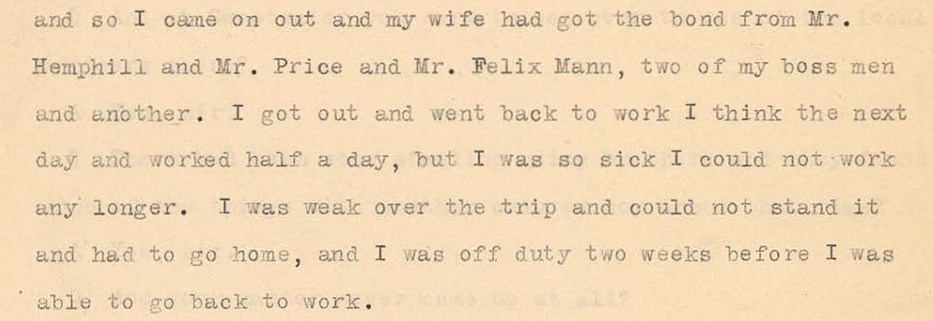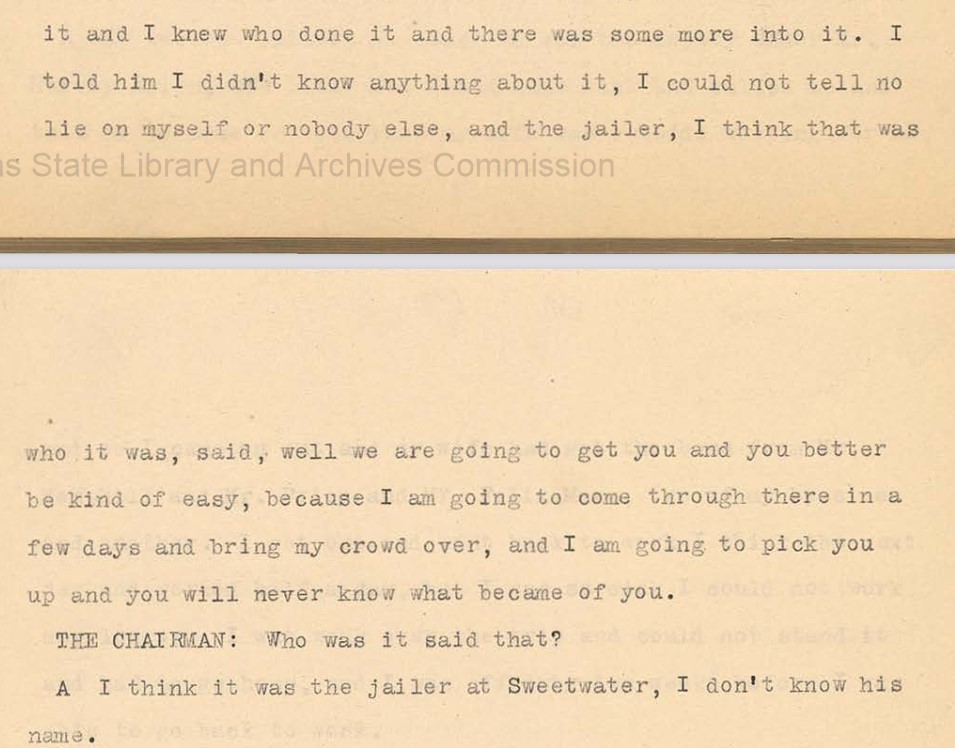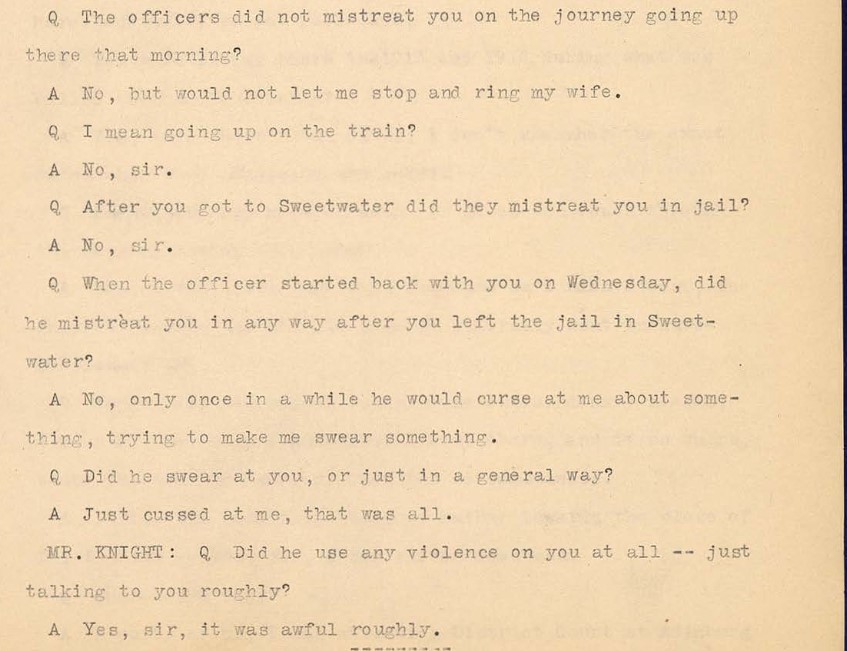In early February 1918, Special Rangers A.B. Hodges and Graham Myers detailed Thomas A. Johnson, a Black man who worked for a San Angelo dry goods store, on suspicion of stealing from a recent railroad shipment. Johnson insisted he had nothing do to with the missing items, but Hodges and Myers took him into custody anyway. Johnston described his arrest and subsequent treatment during the J.T. Canales’ 1919 investigation into the conduct of the Texas Rangers.

Although Special Rangers could be less experienced than other, longer-serving Rangers, the state Ranger force deputized them and sanctioned their actions. Hodges and Myers acted as Rangers when they detained Johnson.
Along with a Mr. Futch and Mr. Simmons, Hodges and Myers interrogated Johnson in a local hotel. They threatened him, jailed him, and prevented him from contacting his wife or boss—even cursing at another Black man when Johnson asked him to contact his wife.

The Rangers arrested Johnson on a Saturday evening. At 4am on Tuesday, they moved him to a jail in Sweetwater, about 85 miles north of San Angelo. They had yet to formally charge Johnson with a crime, and he had not confessed to anything. On the way to the train, they passed another Black man Johnson knew, and he asked this man to contact his wife. The Rangers cursed and threatened this man too, but someone passed the message to Johnson’s wife.

When Johnson’s wife learned of his arrest, she found his bosses and together they asked the local police to release Johnson on bond. The local police refused because the Texas Rangers had arrested him.
Meanwhile, a jailer in Sweetwater threatened Johnson with mob violence and possible lynching. Johnson recalled him saying, “I am going to come through there in a few days and bring my crowd over, and I a going to pick you up and you will never know what became of you.”

On Wednesday evening, Johnson’s wife was able to post his bail with sport from his bosses. Johnson tried to go back to work, but he was too sick and weak from his ordeal. He needed two weeks to recover. The Rangers did eventually file a complaint against Johnson for stealing, but the trial was repeatedly put off. The charge was eventually thrown out.

When Johnson testified during the Canales investigation, representatives for the Rangers belittled his testimony. Robert E. Lee Knight suggested that Johnson couldn’t complain because Hodges & Myers didn’t physically harm him. Johnson insisted that they prevented him from contacting his wife and treated him “awfully roughly.”

As historian Monica Muñoz Martinez explains, Johnson was a powerful voice during the Canales hearings. His testimony shows that Black Texans also racialized threats and violence, and that these incidents involved different types of law enforcement.
Images in this post come from the transcript of Johnson’s testimony during the Canales hearings. You can read the full testimony of Johnson and his lawyer here, starting on page 664, volume 2.
Follow this blog or @Refusing2Forget on Twitter to learn more about the Canales hearings and the violent history of the Texas Rangers.
